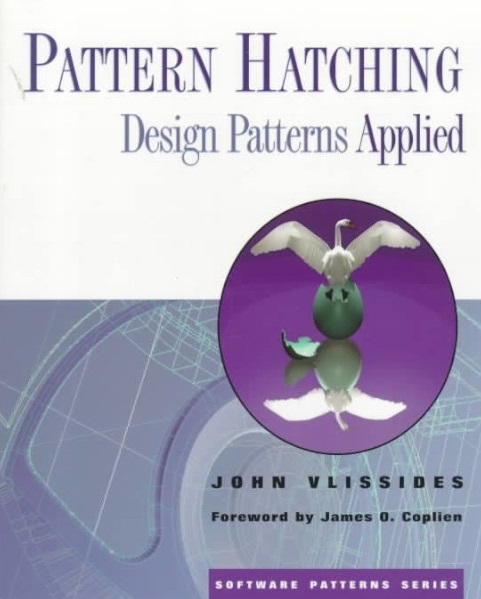Jonghyun Ho
C++ MultiCast introduced by Pattern Hatching

Pattern Hatching 이라는 책에 소개된 C++ 로 구현된 MultiCast 예제이다.
Pattern Hatching 은 디자인 패턴이라는 개념을 정의했던 Gang of Four(GoF) 4명의 저자 중 한 명인 존 블리시데스(John Vlissides)가 실제 사례에 대해 패턴이 어떻게 적용될 수 있는지를 소개한 책이다.
MultiCast는 데이터를 전송할 때 하나의 노드가 여러 노드에 동시에 전송할 수 있는 개념이다.
저자는 다음과 같은 상황에 MultiCast 를 쓸 것을 권장하고 있다.
- 특정 객체의 클래스가 다른 객체로부터 정보를 받는 데 관심이 있을 수 있다.
- 정보는 임의의 구조와 복잡도를 가지며 소프트웨어가 발전함에 따라 달라질 수 있다.
- 정보 교환은 정적으로 타입 안전성이 좋아야 한다.
소개된 MultiCast 예제는 이벤트 기반으로 동작하고, 확장 가능하고 타입 안전성이 좋아 유용하게 사용할 수 있을 것 같아 메모해 두려고 한다.
#include <algorithm>
#include <iostream>
#include <list>
#include <string>
using namespace std;
template <class T>
class TEvent {
public:
class Handler {
public:
Handler() { TEvent<T>::Register(this); }
virtual ~Handler() { TEvent<T>::Unregister(this); }
virtual int HandleEvent(const T& t) = 0;
};
typedef std::list<Handler*> HandlerList;
static void Register(Handler* handler) {
registry_.push_back(handler);
}
static void Unregister(Handler* handler) {
typename std::list<Handler*>::iterator it;
for (it = registry_.begin(); it != registry_.end(); it++) {
if (*it == handler) {
registry_.remove(handler);
return;
}
}
}
static void Notify(TEvent<T>* t) {
typename std::list<Handler*>::iterator it;
for (it = registry_.begin(); it != registry_.end(); it++) {
(*it)->HandleEvent(*(T*)t);
}
}
void Notify() { T::Notify(this); }
private:
static HandlerList registry_;
};
class CoinInsertedEvent : public TEvent<CoinInsertedEvent> {};
class CoinReleaseEvent : public TEvent<CoinReleaseEvent> {};
class ProductDispensedEvent : public TEvent<ProductDispensedEvent> {};
class CoinChanger : public CoinReleaseEvent::Handler,
public ProductDispensedEvent::Handler {
public:
CoinChanger(string name) : name_(name) {}
public:
int HandleEvent(const ProductDispensedEvent& event) {
cout << name_ << " : Product dispensed." << endl;
return 0;
}
int HandleEvent(const CoinReleaseEvent& event) {
cout << name_ << " : Coin released." << endl;
return 0;
}
private:
string name_;
};
TEvent<CoinInsertedEvent>::HandlerList
TEvent<CoinInsertedEvent>::registry_;
TEvent<CoinReleaseEvent>::HandlerList
TEvent<CoinReleaseEvent>::registry_;
TEvent<ProductDispensedEvent>::HandlerList
TEvent<ProductDispensedEvent>::registry_;
int main() {
CoinChanger coinChanger("coin changer 1");
CoinReleaseEvent coinReleaseEvent;
ProductDispensedEvent productDispensedEvent;
coinReleaseEvent.Notify();
productDispensedEvent.Notify();
cout << endl;
CoinChanger coinChanger2("coin changer 2");
CoinReleaseEvent coinReleaseEvent2;
coinReleaseEvent2.Notify();
return 0;
}
Feel free to share!